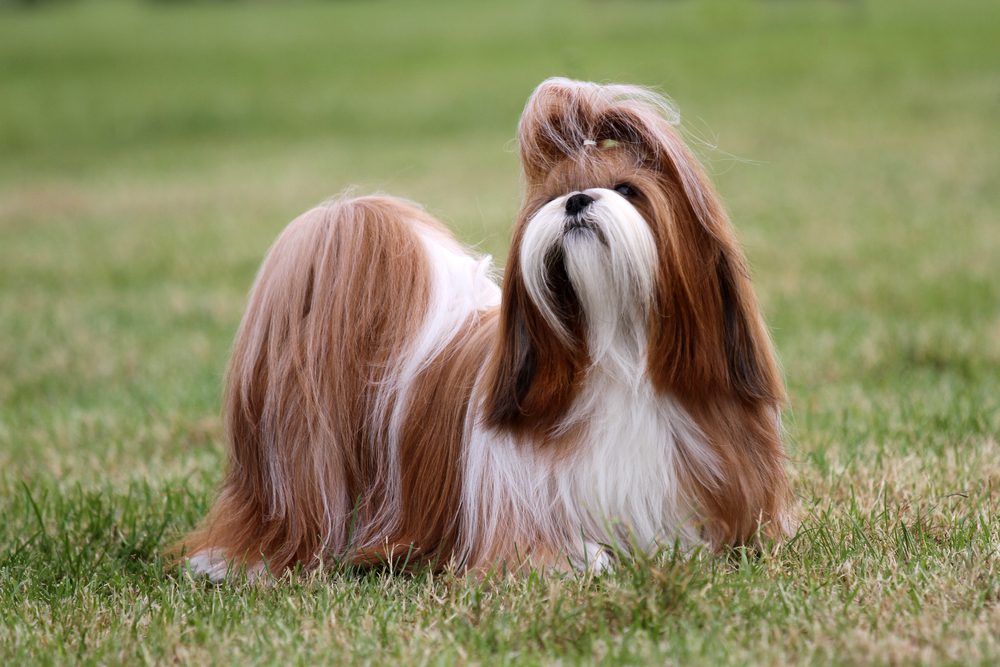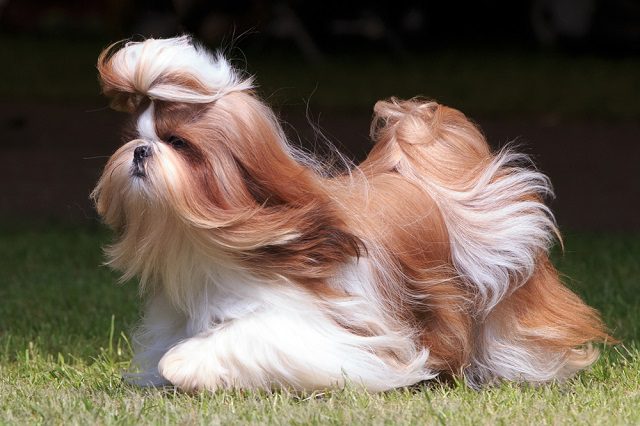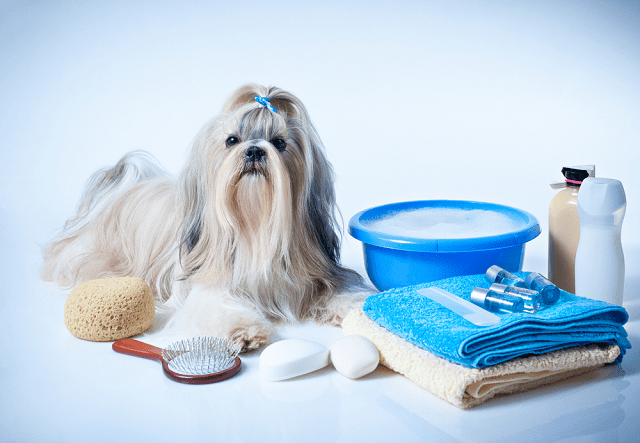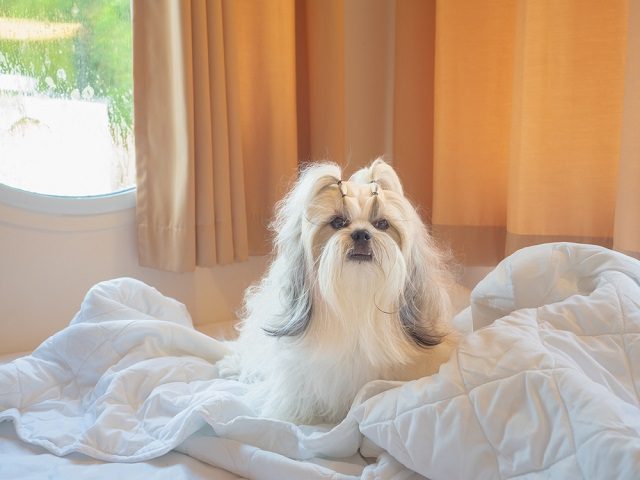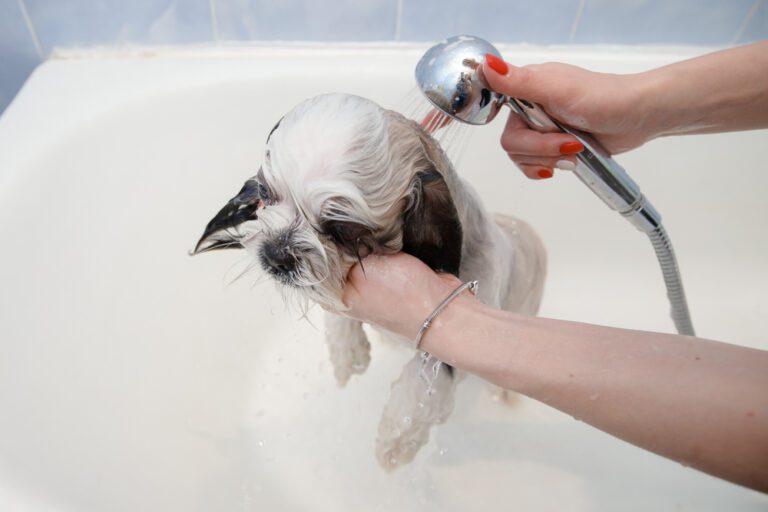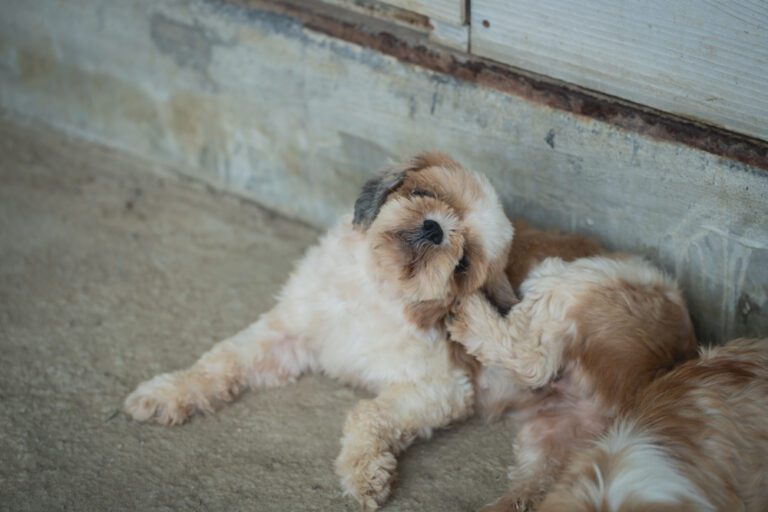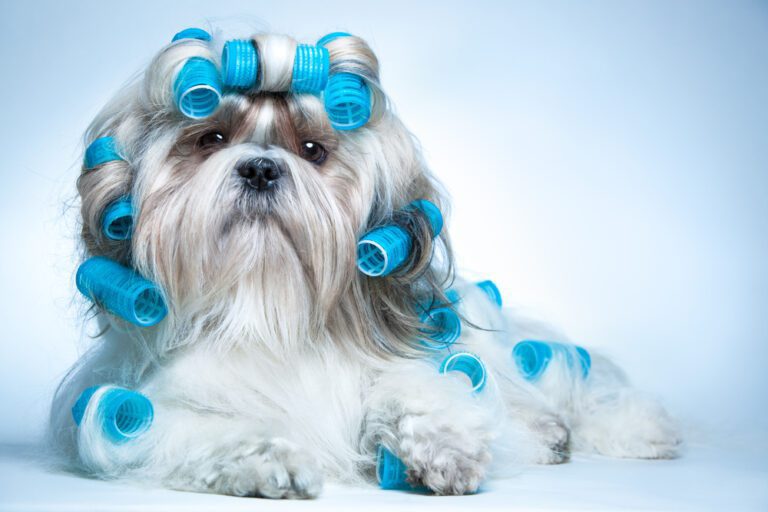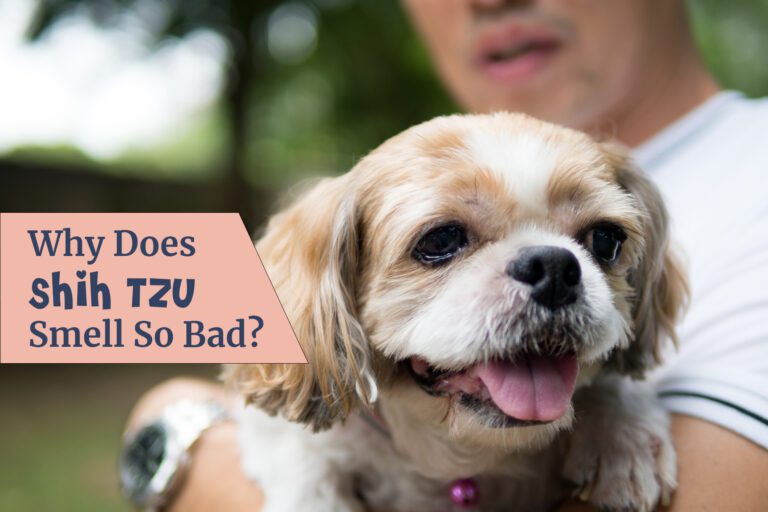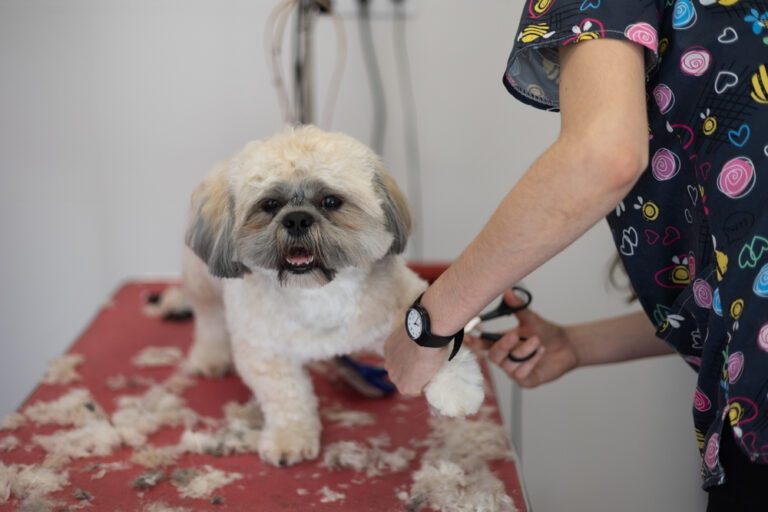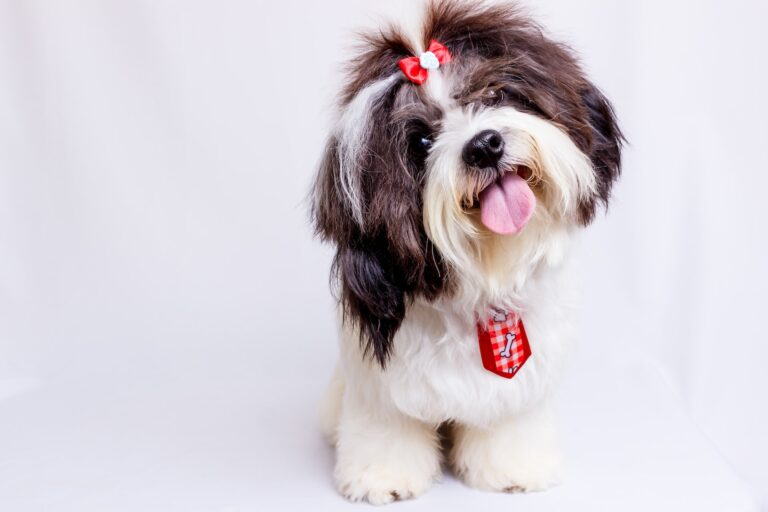Will Shih Tzu Hair Grow Back?
Have you ever noticed your fluffy Shih Tzu looking patchy or not as furry as usual? You might start worrying if their beautiful coat will ever look the same again. It’s a common concern for many pet owners to see their beloved Shih Tzu lose hair and wonder, “Will their hair grow back? Fortunately, we have some encouraging news for you!
In this article, we will explore everything about Shih Tzu hair—from how it grows to what might cause it to fall out and, most importantly, how you can help it grow thick and healthy. Whether dealing with a bit of shedding or more significant hair loss, understanding what’s normal and what isn’t can make a huge difference in how you care for your furry friend. So, let’s dive into the fascinating world of Shih Tzu hair growth and get all your questions answered!
Will Shih Tzu Hair Grow Back?
It can be scary when your Shih Tzu starts to lose hair. You might wonder if their lovely coat will ever be fluffy and whole again. Let’s clear up some of your worries and answer the big question: Yes, Shih Tzu hair can grow back! However, how quickly and thoroughly it happens depends on a few important things.
Hair Growth Cycles
Growth Phase (Anagen)
- Active Hair Growth: This stage is where hair grows from the follicle.
- Duration: The anagen phase can last several months.
- Hair Length: The length of this phase determines how long the hair can grow.
- Nutrient Supply: During this phase, hair follicles receive ample blood supply, ensuring nutrient delivery for hair growth.
Transition Phase (Catagen)
- Brief Transition: A short transitional phase where hair growth slows down.
- Follicle Changes: The hair follicle begins to shrink and detach from the blood supply.
- Duration: This stage typically lasts a few weeks.
- Preparation for Rest: This phase prepares the hair for the resting stage.
Resting Phase (Telogen)
- Growth Halts: Hair growth stops but remains attached to the follicle.
- Dormant State: The follicle is in a resting or dormant state.
- Duration: This phase can span a few months.
- Retention: The hair stays in place until it is pushed out by new growth.
Shedding Phase (Exogen)
- Natural Shedding: Old hair is naturally shed to make way for new growth.
- Hair Fall: Hair falls out as part of the normal renewal process.
- Renewal: This phase is crucial for replacing old or damaged hair with new, healthy strands.
Continuous Cycle
- Varied Stages: Each hair strand on your Shih Tzu is at a different stage in the cycle.
- No Baldness: This variation prevents complete baldness at any given time.
- Replacement: New hair typically grows in to replace any that has fallen out, maintaining a consistent coat.
Potential Issues
- Thinning or Patchiness: If your Shih Tzu’s hair appears thinner or patchy, it could indicate a disruption in the natural cycle.
- Health Concerns: Health problems can interfere with normal hair growth.
- Stress: Stress can impact the hair growth cycle, leading to shedding or stunted growth.
- Nutrition: Poor nutrition can affect the quality and growth of hair.
- Skin Conditions: Skin conditions can disrupt the hair follicles and impede growth.
Maintaining Healthy Hair Growth
- Regular Grooming: Regular brushing and grooming can help maintain healthy hair growth.
- Balanced Diet: Providing a balanced diet with essential nutrients supports healthy hair.
- Veterinary Care: Regular check-ups with the vet can help identify and address any underlying health issues affecting hair growth.
- Stress Management: Ensuring a stress-free environment for your Shih Tzu can promote better hair health.
Factors That Influence Hair Growth
Several things can affect how well and how fast your Shih Tzu’s hair grows back:
- Genetics: Just like people, each Shih Tzu is different. Some have hair that grows fast, while others might grow more slowly.
- Age: Young pups and older dogs might have slower hair growth.
- Health: If your Shih Tzu isn’t feeling well or has skin problems, its hair might not grow back as quickly.
- Diet and Nutrition: What your Shih Tzu eats affects their hair, too. Good food means healthier hair.
These factors can help you see why your Shih Tzu’s hair might not grow back as quickly as you’d hoped. But don’t worry—knowing this helps you care for their coat better.
Causes of Hair Loss in Shih Tzus
Noticing your Shih Tzu’s hair thinning can be worrying. You might even feel a little sad seeing those bare patches where there used to be soft fur. Let’s see why this might happen and understand how you can help.
Genetics Play a Role
Just like people inherit traits from their parents, Shih Tzus does too. Some Shih Tzus are naturally predisposed to have less hair, or their hair might not grow back as quickly because of their genetic makeup. It’s just how they are built!
Health Issues Can Cause Hair Loss
Several health conditions can lead to hair loss in your Shih Tzu. Here are a few common ones:
- Skin Allergies: Allergies can make your Shih Tzu’s skin itchy and irritated, leading them to scratch a lot. This excessive scratching can damage the skin and cause hair to fall out. Common allergens may include certain foods, pollen, dust mites, and flea bites.
- Hormonal Imbalances: If your dog’s body isn’t producing certain hormones correctly, it can significantly affect their hair growth. Conditions like hypothyroidism, where the thyroid gland is underactive, are known to cause hair thinning and loss. Cushing’s disease, which involves an overproduction of cortisol, can also lead to hair loss.
- Parasites: Tiny bugs like fleas, mites, and ticks can irritate your Shih Tzu’s skin. Their bites can cause intense itching, leading to scratching and hair loss. Additionally, some parasites can cause infections that further contribute to hair loss.
- Fungal Infections: Ringworm, a common fungal infection, can cause circular patches of hair loss, scaling, and inflammation. It’s highly contagious and can spread quickly if not treated promptly.
- Bacterial Infections: Bacterial skin infections, often secondary to allergies or parasites, can cause hair loss. These infections can lead to pustules, scabs, and redness, further contributing to the problem.
- Nutritional Deficiencies: A diet lacking essential nutrients, vitamins, and minerals can impact the health of your Shih Tzu’s skin and coat. Ensuring a balanced diet of omega fatty acids, protein, and vitamins can help maintain healthy hair growth.
- Stress and Anxiety: Psychological factors like stress and anxiety can also lead to hair loss in dogs. Stressful events, changes in routine, or separation anxiety can cause excessive licking, chewing, or scratching, resulting in hair loss.
- Autoimmune Disorders: Autoimmune diseases, where the body’s immune system attacks its own cells, can cause hair loss. Conditions like alopecia areata can lead to patchy hair loss and require medical intervention.
Recognizing and addressing these health issues can help maintain your Shih Tzu’s healthy and luscious coat. Regular veterinary check-ups are essential for early detection and treatment.
Grooming and Environment
How you groom your Shih Tzu and where they spend their time can also affect their hair. Here are some things to consider:
- Over-Grooming: Brushing too hard or too often can pull hair out and damage the skin.
- Harsh Chemicals: Some shampoos and grooming products contain strong chemicals that can harm your Shih Tzu’s hair and skin.
- Stressful Environments: Just like stress can make people lose hair, it can do the same to dogs. A stressful home, loud noises, or too much time alone can all make your Shih Tzu lose hair.
Understanding these causes helps you take steps to prevent hair loss. For example, using the right grooming tools and ensuring your Shih Tzu has a calm, happy home can make a big difference. If you suspect a health issue, visiting the vet can get your furry friend the help they need.
How to Promote Healthy Hair Regrowth in Shih Tzus
Seeing your Shih Tzu with patchy or thin hair can be upsetting, but don’t worry too much! There are plenty of ways help their coat grow back thick and shiny. Let’s go through some steps you can take to encourage healthy hair regrowth.
Feed Your Shih Tzu Right
Good food leads to good hair. It’s that simple! Make sure your Shih Tzu eats a balanced diet rich in essential nutrients:
- Proteins: These are building blocks for hair. Foods like chicken, fish, and eggs help a lot.
- Omega Fatty Acids: These keep your Shih Tzu’s coat shiny and skin healthy. You can find them in fish oil and flaxseed oil.
- Vitamins and Minerals: Vitamins like A and E and minerals such as zinc help improve skin health, which is crucial for hair growth.
Groom Gently
Caring for your Shih Tzu’s coat doesn’t mean brushing harder or more often. Be gentle:
- Use the Right Tools: A soft-bristled brush or a grooming mitt can help detangle without pulling out hair.
- Be Regular but Gentle: Regular grooming helps remove dead hair and stimulates the skin, but always be gentle to avoid hurting the skin.
Regular Vet Visits
Health problems can cause hair loss, so regular check-ups at the vet can catch issues early:
- Skin Checks: Ask your vet to check your Shih Tzu’s skin to ensure no infections or parasites.
- Hormonal Balance: If your Shih Tzu is losing hair, a check for hormonal imbalances might be needed.
Create a Stress-Free Environment
Stress affects your Shih Tzu’s overall health, including their hair:
- Quiet Space: Make sure your Shih Tzu has a quiet, comfortable, relaxing place.
- Routine: Dogs feel secure with a routine. Try to keep their meal times and walks regular.
Following these tips can help ensure your Shih Tzu’s hair grows back healthy. Remember, each dog is different, so some might need more care than others. If you’re ever unsure, your vet is there to help guide you!
Conclusion
Today, we’ve explored Shih Tzu coat care extensively. Remember, their hair can grow back with the right care—feeding them well, grooming gently, regular vet checks, and a stress-free environment is key. Keep an eye on the health of their coat, and consult your vet if you have any concerns.
Start by evaluating your Shih Tzu’s diet and grooming routine and making a vet appointment if it’s been a while. By taking these steps, you can ensure your Shih Tzu looks great and feels great!
FAQ’s
How often should I groom my Shih Tzu?
Brush your Shih Tzu several times a week to prevent tangles and mats, and consider professional grooming every 4-6 weeks.
Can diet really affect my Shih Tzu’s hair growth?
Absolutely! A balanced diet rich in essential nutrients like proteins, omega fatty acids, and vitamins can significantly improve the health and growth of your Shih Tzu’s coat.
What should I do if I notice my Shih Tzu is losing more hair than usual?
If your Shih Tzu is experiencing unusual hair loss, consult a veterinarian to rule out any underlying health issues.
Is it bad to shave my Shih Tzu in the summer?
Shaving a Shih Tzu is not generally recommended as their coat protects them from heat and cold. Regular grooming and trimming might be better options for keeping them comfortable.
How can I tell if my Shih Tzu is stressed and if it’s affecting their coat?
Excessive licking, scratching, or biting at the fur of Shih Tzus are signs of stress. Changes in behavior, such as increased aggression or withdrawal, can also indicate stress, which may affect coat health.

